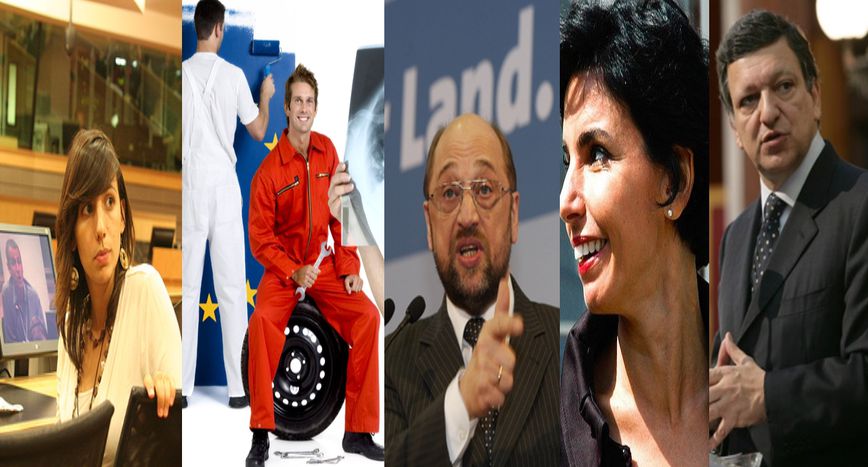
Eurofreaks, eurosceptics and euroabstainers: youth parliament talks
Published on
Translation by:
 Andrew Christie
Andrew Christie
We’ve had 30 years of the right to elect representatives in EU parliament, which has moved from an advisory board to a fully-fledged legislative institution. However, the increase in power of the only EC institution to be elected directly via universal suffrage has coincided with a consistent fall in voter turnouts.
Voter turnout in the EU elections is around 20 points lower across the board than in national elections
Dishonest national political figures looking to blame Europe for all their problems? Stupid French political system in its use of the European parliament as a dumping ground for its failed and disgraced members? These reasons for lack of interest in Europe may not be far from the truth. However, they are not deciding factors. History teaches us that the vote is a question of empathy, as much with regard to the candidates as to the institutions. In a democracy, the mobilisation of millions of people over a common theme presupposes two necessary and complementary conditions. Firstly, the possibility for citizens to identify the running candidates. Secondly, the belief that the decisions made by the elected parties will have a real impact on society. By contrast here, widespread abstention amongst the electorate indicates that voters are still failing to recognise the growing power of the European parliament.
Emotional ties?
But there is still a key element missing. Truth be told, we are still lacking a European democracy because we have no emotional attachment to the civic community which we Europeans make up. This is essentially due to the inexistence of a communal public arena in which we might exchange our visions for a developing Europe. The European youth parliament is doing its bit to fill this void by offering a civil and civic forum, non-partisan and non-military, where everyone could exchange their opinions on the major issues affecting society from a European perspective. The goal is simple yet ambitious: to rise out of the sterile debate between eurofreaks and eurosceptics and enter Europe’s real, public debate.
MEP rules
There is a lot at stake in the European elections. On matters of transport, energy, education and consumer protection, not to mention dozens of political areas, MEPs have the last word on all the papers that are voted on. In the French national assembly, over half of the laws under consideration come from papers already provisionally debated and voted on in the European parliament. The political bias of the European parliament is therefore more than just a detail; it sets the course for all those decisions taken daily in Strasbourg and Brussels and influences our lives significantly.
In the French national assembly, over half of the laws under consideration come from papers already provisionally debated and voted on in the EU parliament
How long are we going to keep relinquishing the political territory where the majority of our laws are produced? Regardless of personal opinions on the current methods of the Union’s institutions, it is imperative that we regain the political ground that we call Europe as a matter of urgency, starting by mobilising ourselves for the elections on 7 June. Failure to do so would ensure that the European Union will forever remain this ‘unidentified political object’ being guided haphazardly by the allegedly apolitical sole operators and experts on European matters.
by Guillaume Borie, president of European youth parliament in France Lacina Koné and Laura Léotoing, vice-presidents and Thibault d’Orso, public relations Officer
Translated from L'Europe, un territoire politique encore à conquérir !


